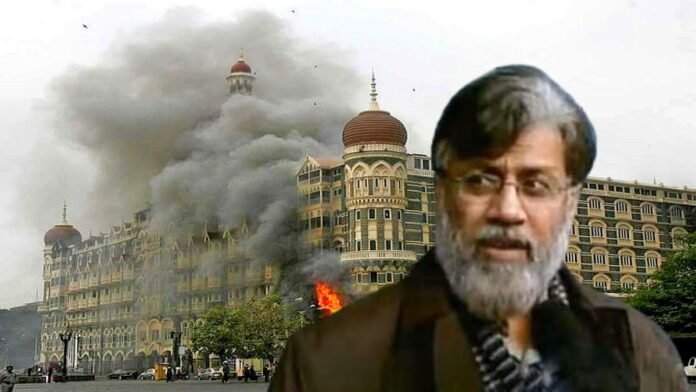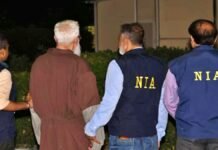
Key Points:
- Tahawwur Rana, accused of aiding the 26/11 Mumbai attacks, is being extradited to India after a prolonged legal battle in the US.
- The US Supreme Court rejected Rana’s final plea against extradition, clearing the way for his transfer.
- Indian authorities have made special security arrangements in Delhi and Mumbai jails for his arrival.
- Rana’s extradition is expected to reveal critical details about the planning and execution of the 2008 terror attacks.
New Delhi: In a significant diplomatic and legal breakthrough, Tahawwur Hussain Rana, a key accused in the 26/11 Mumbai terror attacks, is being extradited to India from the United States. This development comes after years of persistent efforts by Indian authorities and a final rejection of Rana’s plea by the US Supreme Court earlier this week. The 64-year-old Pakistani-Canadian national will be handed over to India’s National Investigation Agency (NIA), marking a crucial step toward justice for the victims of the 2008 attacks that claimed 166 lives.
Who Is Tahawwur Rana?
Tahawwur Rana is a former Pakistani military doctor who later became a Canadian citizen and established an immigration consultancy firm, First World Immigration Services, in Chicago. His company served as a front for facilitating reconnaissance missions in India by David Coleman Headley, another key conspirator in the 26/11 attacks. Headley, who testified against Rana in US courts, revealed that Rana provided him with financial support and helped him obtain an Indian visa under false pretenses.
Rana also reportedly stayed in Mumbai days before the attacks, reviewing preparations alongside Lashkar-e-Taiba (LeT) operatives. He worked closely with ISI officials like Major Iqbal, who played a central role in orchestrating the attack.
The Extradition Battle
India has been pursuing Rana’s extradition since 2019 under the India-US Extradition Treaty of 1997. After multiple appeals through US courts, including claims of potential torture and health risks if extradited, the US Supreme Court denied his final plea on April 7, 2025. Earlier this year, President Donald Trump approved Rana’s extradition following discussions with Indian Prime Minister Narendra Modi.
Rana was arrested by the FBI in 2009 for his involvement in both the Mumbai attacks and a foiled terror plot targeting a Danish newspaper. While he was acquitted by a US court on charges directly related to the Mumbai attacks, he was convicted of providing material support to LeT between 2005 and 2009.
India’s Preparations
Rana’s arrival has prompted heightened security measures in Delhi and Mumbai jails. National Security Advisor Ajit Doval is overseeing arrangements to ensure compliance with US judicial recommendations regarding extradited individuals. The NIA plans to interrogate Rana extensively about his role in planning and financing the attacks.
Indian authorities believe that Rana’s questioning could uncover previously unknown details about the conspiracy behind 26/11, including links between LeT operatives and Pakistan’s ISI. So far, Ajmal Kasab remains the only attacker prosecuted in India for the incident.
A Diplomatic Triumph
The extradition of Tahawwur Rana is being hailed as a major diplomatic victory for India. Senior Advocate Mahesh Jethmalani described it as a “feather in India’s cap,” crediting both Indian and US legal teams for their efforts. This milestone underscores India’s commitment to holding those responsible for terrorism accountable on an international stage.
What Happens Next?
Upon arrival in India, Rana will face charges under multiple sections of Indian law, including murder, waging war against the state (IPC), and conspiracy under UAPA. These charges carry severe penalties, including life imprisonment or death. The NIA Special Court is expected to expedite trial proceedings once he is formally charged.
Rana’s extradition not only brings hope for justice but also reinforces global cooperation against terrorism. His interrogation could provide critical insights into cross-border terror networks and their modus operandi an essential step toward preventing future tragedies like 26/11.


















































